Meeting Every Child’s Needs in a Family with ADHD

ADHD Affects the Whole Family
A child with ADHD (attention deficit hyperactivity disorder) can have a ripple effect on the whole household. Their emotions may dominate the family’s attention. Symptoms like talking too much, fidgeting, and messiness don't always go over well with siblings. And the extra attention you give your child with ADHD can make your other kids jealous. To avoid frustration and fights, set up some ground rules and make sure everyone's needs are met.
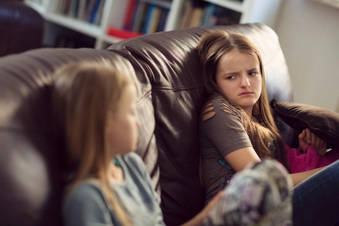
Try a Little Empathy
Your kids have good reasons for getting frustrated with their ADHD sibling sometimes. Validate their feelings. Let them know you understand and that it's OK for them to be upset sometimes. Teach them about ADHD and the behaviors that come with it so they can see why their brother or sister acts the way they do and why they may need extra attention.
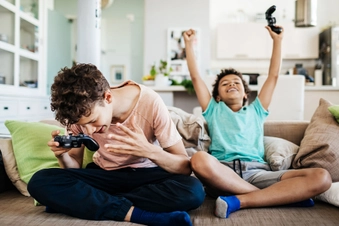
Set Rules and Routines
Structure and consistency are important for all kids – whether they have ADHD or not. Set realistic expectations for each child so they know what you want from them and what will happen if they break the rules. Try to keep those rules consistent for each child. Praise and reward kids for good behaviors like getting along. Follow through with consequences such as time-outs or losing screen time when they break the rules.
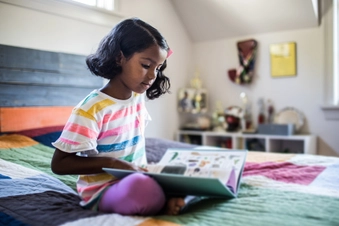
Give Kids Their Space
When tensions run high, kids need a place to escape and deal with their frustrations. If separate bedrooms aren't an option, divide up a room so that each child has a section of their own. Set up clear boundaries so that no child can intrude on the other's personal space.

Schedule Family Fun Time
Don't let fights or discipline be the main focus of your family's interactions. Plan fun activities for everyone to enjoy. Scheduling family fun time creates a routine and lets the whole family look forward to doing something together. Outings also help your child with ADHD burn off bottled-up energy. Go for a hike in the woods, plan a picnic in the park, or head to the zoo. Let each child have a turn planning an outing.

Plan One-on-One Time
With so much of your attention focused on your child with ADHD, your other kids can feel left out. Set aside time to focus on each child. Pick a place where you can be alone one-on-one without any distractions. You might go to a park or an ice cream shop. Listen to your kids and respond to any problems they're having. Come up with ideas together for managing sibling conflicts as well as issues that may not be related to family or siblings.
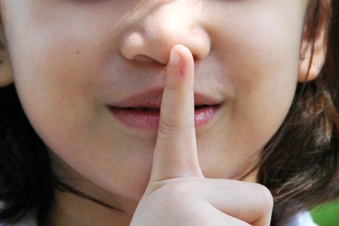
Teach Coping Skills
Help your children navigate their relationships with each other. Brainstorm positive ways to respond to problem behaviors. When their brother or sister talks too loudly, for example, one solution might be to play the "quiet game." Have them challenge their sibling to see who can keep silent the longest. Role-play other solutions and keep practicing them together until your kids feel comfortable using them on their own.
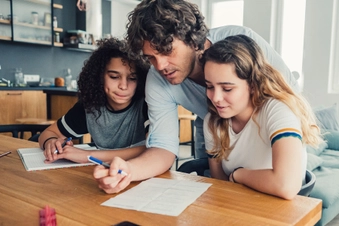
Dole Out Discipline Evenly
Your kids may shout "not fair!" when their sibling with ADHD gets away with acting out while they get punished for the same thing. Avoid the appearance of favoring one child by setting the same rules for everyone in the house. Each child has to finish their homework, do their chores, and follow the house rules. The consequences for breaking those rules should be the same for everyone.

Think Before You Put Kids in Charge
Busy parents sometimes ask older kids to help care for their sibling who has ADHD. The child in charge might babysit, make meals, or help with homework. But if you ask for too much help or consistently put an older child in this parenting role, don't be surprised if they push back. Before you hand over childcare responsibilities to one of your kids, make sure they're ready and willing.

Care for Yourself, Too
Parenting a child with ADHD can be fun, but also exhausting – especially when you have other kids at home. While you attend to your children, don’t forget your own needs. Find strategies that help you manage stress. Take time to relax and unwind. Ask for help from a therapist or a friend to regain your footing when things get challenging at home.
Show Sources
IMAGES PROVIDED BY:
- Klaus Vedfelt / Getty Images
- Elva Etienne / Getty Images
- Tom Werner / Getty Images
- MoMo Productions / Getty Images
- Tom Merton / Getty Images
- Catherine Falls Commercial / Getty Images
- TeeJe / Getty Images
- VioletaStoimenova / Getty Images
- Cavan Images / Getty Images
- shapecharge / Getty Images
SOURCES:
Boys Town: "ADHD and Siblings."
Child Mind Institute: "Summer Success Kit for Kids With ADHD."
Children's National: "How Do I Deal With My 7-Year-Old Brother Who Is Hyperactive?"
Edge Foundation: "The ADHD Sibling Effect."
International Journal of Environmental Research and Public Health: "Siblings' Perceptions of Their ADHD-Diagnosed Sibling's Impact on the Family System."
NHS: "Symptoms – Attention Deficit Hyperactivity Disorder (ADHD)."
My Health Alberta: “ADHD: Taking Care of Yourself When Your Child Has ADHD.”